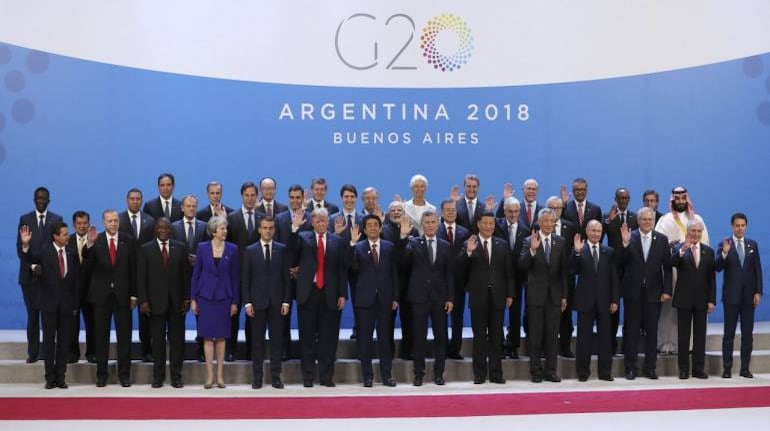
Abhijit Iyer-Mitra
The political effects of pandemics are linked to the economic and sociological fallout of the devastation wreaked by them. The question is in what way will the current COVID-19 pandemic change international politics, if at all.
The Black Death of the 14th Century was particularly impactful because it eroded the authority of the Catholic Church, which had up to that point been the arbiter of much of European politics. The loss of faith on one hand and the intensified religiosity on the other led to the renaissance in Italy (combined with other factors such as Byzantine scholars taking refuge there) and to severe pogroms against Jews, gypsies and lepers in the rest of Europe. In time, the renaissance would lead to the reformation over a hundred or so years.
Curiously it was the areas of increased religious fervour and pogroms such as Northern Europe that the reformation took hold, whereas it was in Italy where the renaissance started that stayed in the Catholic fold.
However, if we look at what happened in linear terms, it changed absolutely nothing in political terms, save the collapse of the United Ilkhanate in Baghdad. As American historian Barbara Tuchman observes in her brilliant ‘A distant mirror, the calamitous 14th century’, Europe plodded on like nothing had happened even though the plague struck song with massive famines and the Hundred Years’ War between France and England.
Fast forward to the Influenza epidemic of 1918, the World War raged on irrespective, despite the many deaths — mostly because news of these deaths was censored, but also because it simply didn’t have any impact on the battlefield.
 There are a few studies that show it affected the Central European triple alliance (of Germany, Austria-Hungary and Italy) and more than it did the triple entente powers, hastening their defeat. However, the results are almost impossible to gauge and far from convincing. Its effects were as uneven as the inexplicable rise of the renaissance in Italy, but not in other areas of Europe that were as badly or worse affected.
There are a few studies that show it affected the Central European triple alliance (of Germany, Austria-Hungary and Italy) and more than it did the triple entente powers, hastening their defeat. However, the results are almost impossible to gauge and far from convincing. Its effects were as uneven as the inexplicable rise of the renaissance in Italy, but not in other areas of Europe that were as badly or worse affected.
Namely in that in India, the pandemic in conjunction with other factors speeded up the independence movement. Again, direct causality is almost impossible to prove. Noticeably the social impact was much less.
Come to 2020, and the current pandemic is different from all previous ones.
Primarily, this is because the deaths have been tightly controlled and are nowhere near the figures for previous pandemics. The total deaths as of April 8 are around the 84,000 mark. More importantly it seems nobody is any mood to punish China, though China may be doing enough to ensure a drop in confidence.
For starters, the myth of ‘improving Chinese quality’ has been comprehensively busted. From masks, to personal protection equipment (PPE) to quick tests, it seems the quality of Chinese medical products is abysmal.
Compounding this is the farce of Chinese aid, which it turns out is being used to price gouge, selling things back to countries that had unwittingly sold China their excess stock in the early period of the crisis. Finally, we have the threat to France that its massive order of Chinese medical equipment will only be met if France agrees to a Chinese 5G network.
In short, even if the world didn’t want to gang up on China, China has ensured a loss of product confidence and a loss of goodwill. Assuming what we’ve learnt from other pandemics holds, and the consequences are not direct, what we will probably see is a calculated and deliberate dismantling of interdependence — where production inefficiencies are accepted as a security measure. This in turn will probably see an acceleration of efforts to industrialise 3D production. Of course much of this is speculation.
Given China’s remarkable ability to manipulate prices, it is more than capable of successfully defeating these measures. Moreover let’s not forget, public memory is very short. The 1918 Influenza epidemic is called the forgotten epidemic because it was literally forgotten, except to some niche medical history students. Indeed if past epidemics neither stopped wars, nor led to a realignment of power blocs, nor led to new systems of governance or global norms, why should we assume this particular pandemic would lead us into a brave new world?
Come fall 2020 in all likelihood we’ll go back to discussing European trade, China’s role in the world, India’s faltering economy and US President Donald Trump’s shenanigans. History teaches us that’s what happened, and history is seldom wrong.
For more Opinion articles, click here.
Abhijit Iyer-Mitra is a defence economist and senior fellow at Institute of Peace and Conflict Studies, New Delhi. Twitter: @iyervval. Views are personal.
(This is the first article in a multi-part series, World After COVID-19, which looks at the probable developments in various sectors: macro economy, trade, healthcare, agriculture, judiciary, international politics and sports.)
Discover the latest Business News, Sensex, and Nifty updates. Obtain Personal Finance insights, tax queries, and expert opinions on Moneycontrol or download the Moneycontrol App to stay updated!
Find the best of Al News in one place, specially curated for you every weekend.
Stay on top of the latest tech trends and biggest startup news.